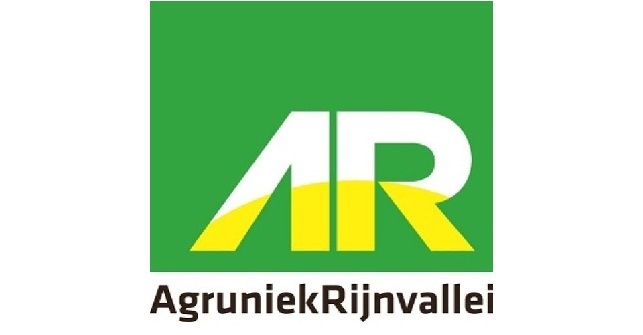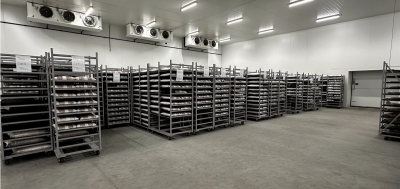A few years ago, we visited the spawn facility in Venlo - back then still operating under the name Lambert Spawn. Much has changed since. Time for a renewed introduction. We spoke with Ies Hooglugt, site manager of the Venlo location, about technology, collaboration and Ecovative’s ambitions.
The moment you walk into Ecovative’s production site in Venlo, it’s clear: serious work is being done here to produce top-quality spawn. Since the American company Ecovative took over around 2.5 years ago, a lot has changed and improved.
“We’ve truly matured as an organization,” says Ies Hooglugt. “The technology, the processes, and the people have all grown significantly.”
Spawn as core business
The Venlo factory is a well-known name in the spawn industry, formerly operating under the Lambert Spawn brand. Today, about 90% of production is focused on mushroom spawn and 10% on so-called “non-mushroom” applications, such as leather alternatives and mycelium-based packaging.
“That market is still in development. Promising, but young,” says Hooglugt. “Our core business remains the production of mushroom spawn.”
Within that 90%, the split is approximately 80% Agaricus and 20% exotics. “A valuable addition. We see great potential there, and the results are promising.”
From grain to custom solutions
One of Ecovative Venlo’s distinguishing features lies in the substrate used for growing spawn. While many suppliers use standard grain and straw, Venlo decided to look further.
“We used to work exclusively with millet, but that’s not suitable for every mushroom species,” explains Hooglugt. In collaboration with Belgian partner Mycelia - known for its extensive knowledge of exotics - new carriers were developed: Blend and Speed Spawn.
“We tailor the substrate to the mushroom, not the other way around. This results in faster and more efficient colonization of the substrate.”
Strategic partnership with Mycelia
The collaboration with Mycelia is strategic and goes far beyond just substrate or inoculum.
“For exotics, we work together at the highest level,” Hooglugt explains. “Mycelia brings decades of experience and deep knowledge of exotic species, and we contribute our production expertise. It’s a close collaboration - from strain selection to final spawn production.
For Agaricus, we now produce our own inoculum in-house, but for exotics we consciously build on Mycelia’s strength.”
According to Hooglugt, the triangle is solid: the American parent company provides scientific power, Mycelia brings practical expertise, and Venlo contributes production knowledge.
“All of these elements complement each other perfectly.”
Quality first
The acquisition by Ecovative has raised the bar. Internal processes have been tightened, and quality systems optimized.
“The advanced and unique system we use to make spawn is fairly complex. It requires well-trained people,” says Hooglugt. “Fortunately, we have a strong and stable team here, with hardly any turnover. That’s quite exceptional in this sector.”
He likes to compare it to Formula 1: “You can have the best car, but without a skilled driver, you won’t win the race. And vice versa. Here, everything lines up — people, technology and processes.”
Testing and research
Ecovative leaves nothing to chance, as shown by its close cooperation with research institutes. Spawn is tested at Inagro in Belgium, and the company works with Wageningen University & Research (WUR).
“WUR recently developed 16 sporeless oyster mushroom strains,” says Hooglugt. “These are freely available to the market, with the exception of the Purati, which is an exclusive release by Mycelia. And we’re producing the spawn.”
Growth ambitions
Although exports are going well, there’s still room to grow in the Dutch market.
“We’d like to expand domestically,” says Hooglugt. At the same time, he sees the market evolving. “There’s consolidation happening, growers are scaling up, and so are suppliers. That’s exactly why having alternatives is becoming more important.
We notice growers are making more conscious decisions.”
A great example is an Italian Pholiota grower who felt too dependent on his regular supplier.
“He actively sought a solid alternative, and we succeeded together,” Hooglugt shares. “We developed a new solution collaboratively. That’s what we stand for: flexibility, customisation and quality. It gives growers more control over their own process.”
After our visit to Venlo, one thing is clear. Ecovative stands strong, both literally and figuratively. The team knows what it stands for, operations are tightly managed, and the vision is clear. Most of all, the door is open for growers who want to move forward.
Team Mushroom Matter






















